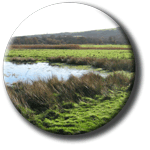Country Park
A country park is an area designated for people to visit and enjoy recreation in a countryside environment.
The purpose of a country park is to provide somewhere for visitors who do not
necessarily want to go out into the wider countryside. Visitors can enjoy a
public open space with an informal atmosphere, as opposed to a formal park as
might be found in an urban area. For this reason country parks are usually found
close to or on the edge of built-up areas, and rarely in the countryside proper.
designated for people to visit and enjoy recreation in a countryside environment.
The purpose of a country park is to provide somewhere for visitors who do not
necessarily want to go out into the wider countryside. Visitors can enjoy a
public open space with an informal atmosphere, as opposed to a formal park as
might be found in an urban area. For this reason country parks are usually found
close to or on the edge of built-up areas, and rarely in the countryside proper.
A country park usually has some more formal facilities, such
as a car park, toilets, maybe a cafe or kiosk, paths and trails, and some information
for visitors. Some have much more, with museums, visitor centres, educational
facilities, historic buildings, farms and all sorts of things.
There are about 250 recognised country parks in England and
Wales. Most country parks were designated in the 1970s, under the Countryside
Act 1968 with the support of the former Countryside Commission (now Natural
England ).
In more recent times there has been no specific financial support for country
parks directly, and fewer have been designated. Most are managed by local authorities,
although other organisations and private individuals can also run them. There
is nothing to stop anyone opening a site and calling it a Country Park, although
they might not receive recognition from the Countryside Agency. Indeed there
are quite a few such parks in existence, some of which are very far from what
one might normally expect a country park to be.
).
In more recent times there has been no specific financial support for country
parks directly, and fewer have been designated. Most are managed by local authorities,
although other organisations and private individuals can also run them. There
is nothing to stop anyone opening a site and calling it a Country Park, although
they might not receive recognition from the Countryside Agency. Indeed there
are quite a few such parks in existence, some of which are very far from what
one might normally expect a country park to be.
There is not necessarily any public right of access to Country
Parks, and visitors are usually subject to by-laws when they enter the park.
Some charge for car parking, some are free.
These parks vary tremendously from one to another, and really
have only their purpose in common: to provide easy access to the countryside
for those living in the towns and suburbs. They do not necessarily have any
great nature conservation interest, although often this is the case.

 designated for people to visit and enjoy recreation in a countryside environment.
The purpose of a country park is to provide somewhere for visitors who do not
necessarily want to go out into the wider countryside. Visitors can enjoy a
public open space with an informal atmosphere, as opposed to a formal park as
might be found in an urban area. For this reason country parks are usually found
close to or on the edge of built-up areas, and rarely in the countryside proper.
designated for people to visit and enjoy recreation in a countryside environment.
The purpose of a country park is to provide somewhere for visitors who do not
necessarily want to go out into the wider countryside. Visitors can enjoy a
public open space with an informal atmosphere, as opposed to a formal park as
might be found in an urban area. For this reason country parks are usually found
close to or on the edge of built-up areas, and rarely in the countryside proper.